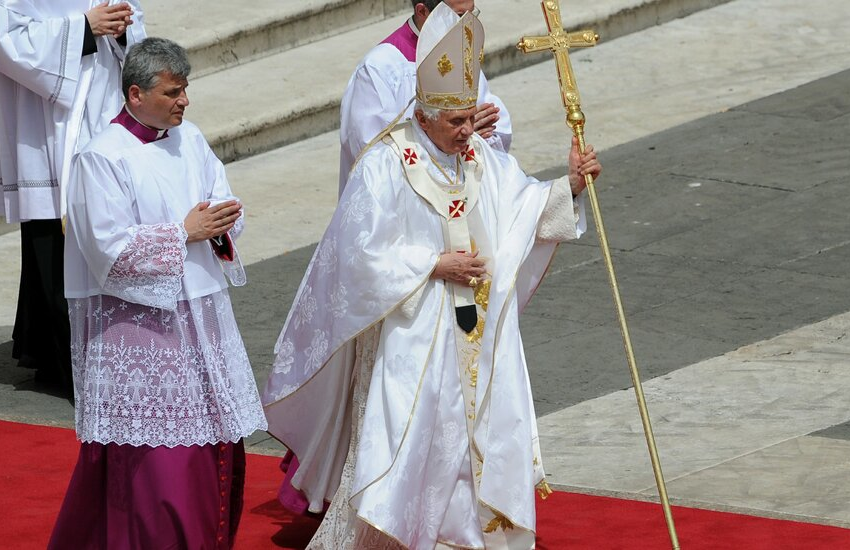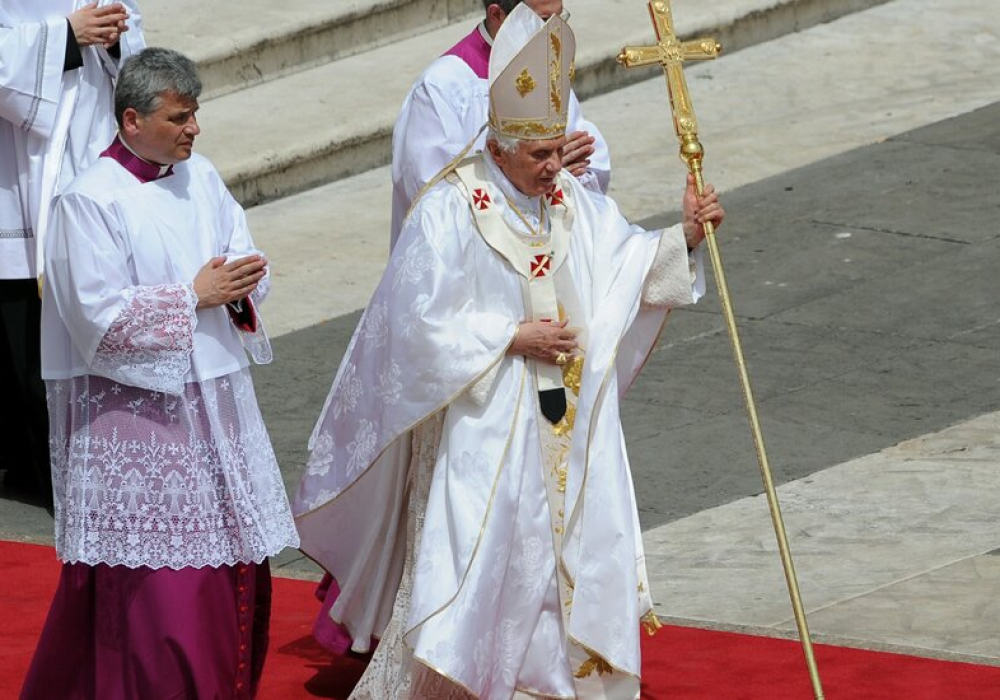ROME — A report released on Thursday accused Pope Emeritus Benedict XVI of mishandling at least four cases of sexual abuse by Roman Catholic priests when he was the archbishop of Munich, according to the law firm that conducted an investigation.
Benedict, known then as Cardinal Joseph Ratzinger, was archbishop of Munich and Freising from 1977 to 1982 and had oversight over the clerics. In at least some of the cases in question, the report said Benedict had failed to discipline the abusive clerics.
Accusations of Benedict’s mismanagement of abuse cases as archbishop have hounded him for years, including during his papacy, as has criticism that he did not do enough to hold bishops accountable for covering up abuse in the church. But Thursday’s report, commissioned by the Munich church, is the first formal accusation that Benedict failed to discipline abusive priests and allowed them to continue their ministry without restrictions.
“In a total of four cases, we came to the conclusion that the then-archbishop, Cardinal Ratzinger, can be accused of misconduct,” Martin Pusch, one of the report’s authors, said.
The law firm, Westpfahl Spilker Wastl, which drafted the report, said that Benedict had firmly denied any wrongdoing.
Despite the many criticisms, Benedict has also been credited with dismissing some accused clerics, and he was the first pope to apologize for abuse and meet with victims.
He is also not the first pope to have faced accusations of mishandling abuse, and some of the allegations against him are not new.
In March 2010, the Vatican newspaper, L’Osservatore Romano, dismissed as an “attack” news media reports questioning Benedict’s role in handling abuse when he was archbishop of Munich in 1980 and later as prefect of the Vatican’s doctrinal office.
After the report was released on Thursday, a Vatican spokesman, Matteo Bruni, said the Holy See would read and examine it in the coming days and give it “due attention.”
“In reiterating the sense of shame and remorse for the abuse of minors committed by clerics,” Mr. Bruni said, “the Holy See ensures its closeness to all the victims and confirms the path taken to protect the little ones, guaranteeing them safe environments.”
The firm’s report on the handling of clerical abuse of minors in the diocese of Munich and Freising, which covered the period from 1945 to 2019, also accused other senior church figures in the diocese of mishandling sexual abuse cases.
Cardinal Reinhard Marx, who is one of Pope Francis’ closest advisers and who has led the diocese since 2007, offered his resignation as head of the archdiocese last year to take personal responsibility for sexual abuse by priests over the past decades. But the pope rejected his resignation.
The report identified at least 497 victims, most of them boys. About 60 percent were between the ages of 6 and 14. It identified 235 abusers, including priests, deacons and employees of Catholic schools.
This is not the first revelation of sexual abuse by clerics in Germany.
After his time as archbishop in Munich, Benedict became the chief doctrinal watchdog of the Roman Catholic Church, serving for years under Pope John Paul II.
Pope John Paul II took a defensive stance in the face of abuse accusations. Critics say he turned a blind eye to the widespread sexual abuse, and abuse of power, throughout the global church and in his hierarchy.
An extraordinary Vatican report in 2020 cast the sainted John Paul in a harsh light and blamed him for the advancement of the disgraced former prelate Theodore E. McCarrick and for the general culture of looking the other way.
As John Paul’s right-hand man, Benedict came under attack by abuse survivors for what they said was his complicity in those decades of Vatican cover-ups and minimization.
But his supporters argued that he had been ahead of his peers in recognizing how deeply the church had been damaged by disclosures that priests had sexually abused young people for decades.
“How much filth there is in the church, even among those who, in the priesthood, should belong entirely” to God, Benedict lamented in a major Good Friday speech shortly before being elected pope in 2005.
As pope, Benedict did take action. He threw hundreds of abusive priests out of the church, set up special tribunals and streamlined procedures to investigate and discipline accused priests.
But his papacy coincided with a major eruption in the sexual abuse crisis, and he often seemed overwhelmed by it.
Many activists said they wanted the church to go farther than just disciplining or defrocking priests. The problem, they argued, was systemic, as bishops and other church leaders moved offending priests from parish to parish or protected the church instead of victimized children and hid crimes from the civil authorities.
Benedict resigned in 2013 and his successor, Pope Francis, has had his own learning curve on the issue. But in recent years, he has put in effect tougher regulations to protect children and force accountability among his bishops, though activists say he can still do more.













